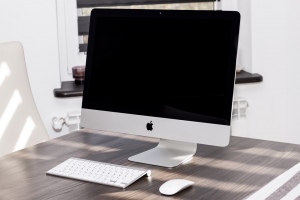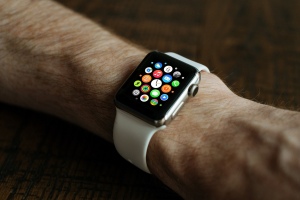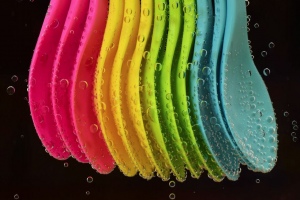Technology has become a convenient excuse, a scapegoat for everything that’s going wrong in the world. An unprecedented number of kids and adults are obese. Blame it on technology. People can’t sleep. Blame it on technology. Young people are overly narcissistic. Blame it on technology. The bomber used a drone. Blame it on technology. The entire human race is becoming more and more incredibly stupid. Blame it on—you know what.
People always talk about the problem with technology. In and of itself, there is nothing fundamentally wrong with it. Technology is an inevitable consequence of the times, the circumstances, and the desire of people to live better lives. It is a consequence that could either be good or bad, depending on who you’re talking to.
One study claims that the average person now spends more time on his phone than sleeping. Researchers seem to have a particular liking on the topic of sleep and technology, which of course often results in pointing technology as the bad guy. Another favorite topic is technology’s (bad) effects on children’s health. Obesity now affects one in every six children and adolescents in America. This is a classic case of technology affecting physical activity of kids who’d rather watch YouTube videos than play outside.
The objective of these studies does not mean to take away anything from technology. It is too late to discredit it after all. But there is another truth that deserves as much spotlight. When discussing how technology affects our physical health and even relationships, it is just fair to approach the subject in a different perspective. Can health and technology ever work together? Or aren’t they already?
Want to Lose Weight? There’s an App for that
There’s an app for almost everything. While entertainment and gaming apps may still outnumber the ones that help you live a healthy lifestyle, it is a good start. Much has been said about the physical effects of technology use. Or shall we say the irresponsible and excessive use of technology. But at the same time, there is the intention to strike a balance. There are yoga, Pilates, Zumba, and exercise apps that you can download. There’s even an exercise app for the woman on the go or for the woman who is too lazy to get up from the couch. This is an example of how technology can improve people’s general health and well-being.
Eat Healthy with the help of the Web

There is a study that basically says that social media is making people fat. Two professors from the University of Pittsburgh found that while Facebook can make people happy, it is also to blame for impulse decisions. This “Facebook effect” makes people want to eat chips over granola bars. Food-related posts from friends are also likely to increase appetite.
That is one way of how technology affects our physical health. The other way is how technology can help us eat better and healthier. There are countless tutorial videos that are devoted to teaching people how to prepare healthy meals. There are thousands of how-to blog posts that preach about calories and different diet regimens. And the list goes on.
Tell the World About your Fitness Journey

Social media can be your weight-loss motivator. Sure, photos of food can make you go weak on the knees but social networking sites can document your struggle, motivating you in the process. Tweet about the kilometers you covered while running today. Compare that to yesterday’s tweet.
Tell your social contacts about your fitness journey. Knowing that hundreds of people are aware of what you are going through can motivate you better. Knowing that your friends are cheering you on will keep you focused on your goal. And the bonus is that you get to inspire people to start living a healthy lifestyle.
Sleep Better with a Hi-tech Mattress
The light that gadgets and screens emit alerts hormones in the body. This is the scientific explanation as to why browsing the Internet before going to sleep is a big no-no. Instead of preparing our bodies for sleep, light from gadgets keeps us awake.
Aside from sleep apps, technology has infiltrated the sleep market in another way. Innovations on mattresses aim to give people restful sleep. The introduction of senso memory foam, gel-infused foam, and cooling fabric technology is an example of how technology can make sleeping more relaxing. Not only do advanced sets of mattresses adjust to the mold and movement of the body, they also maintain a temperature perfect for slumber. Mattresses with biometric sensors even monitor heart rate.
While it can’t be denied that technology is affecting sleeping habits, there are technological breakthroughs that may be utilized to minimize the bad effects.
Staying Healthy with Wearable Technology
Improving one’s health has never been this easy. In the age of mobile technology, there has also been massive growth in the wearables market in the health and fitness department. It is estimated to reach 170 million devices by 2017.
The fitness industry today uses clips, straps, and bangles to record and analyze physical activities and monitor health. There are also wearables that track and monitor sleep patterns, calorie intake, and fitness levels. They aim to improve overall health by setting goals and challenges.
Out of reach? There’s Social Media
Recent studies have linked depression to excessive use of social media. When you see your social contacts travel, get married, and land a dream job, some people can’t help but feel envious and lacking.
However, the main objective of social media remains the same. It is to make communication efficient wherever you are in the world. It is everyone’s best connection to the rest of the world. With the responsible use of social media, personal relationships can be strengthened.
There are many instances when technology can either help or hinder health care. It is totally up to you. Technology is like a glass of water, you can either see it half-empty or half-full.









